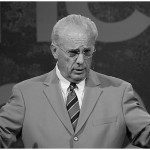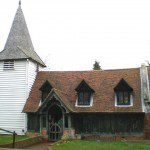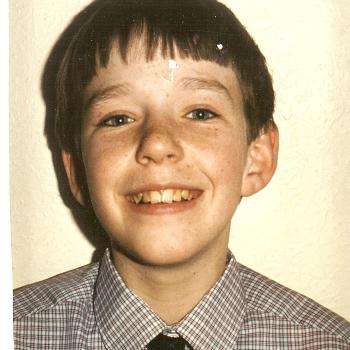Over at Tim Challies, MacArthur has been interviewed about the criticism that has surfaced of him following the Strange Fire conference. This is interesting for two reasons. Firstly because of his brief summary of his case, and secondly for an attempt to rein in some of what to many of us seem like clear statements rejecting charismatics wholesale.
Regarding the arguments he choses I thought I would briefly address them here:
What are the gifts? MacArthur believes that the gifts of the Holy Spirit were solely given to accredit the Apostles. We believe that 1 Corinthians alone demonstrates that is not the case as there is no evidence that the Corinthians were Apostles. He also believes any modern manifestations are different in kind from what seen in the Bible. We would acknowledge that in the vast majority of cases they are different in extent. In other words we believe that modern gifts are the same qualitatively as those seen in the NT but that quantitatively they are different.
Thus, for us. a healing is a healing whether it happens in response to a whole church praying, or whether an Apostle can authoritatively command the sickness to leave. The person was still healed. Interestingly in this summary MacArthur doesn’t explain how he sees the modern experiences: are they genuinely of God (in at least some cases), solely of the flesh (which seems hard to accept given for example the supernatural knowledge sometimes seen, eg by Spurgeon), or inspired by the devil (which seems strange if it is indeed leading to more salvations, and a greater love for Jesus in many lives).
In our view if we are seeing a lesser form of some of the gifts, we think it is helpful to use biblical language to describe them. If our argument was just over what to call these things, then I think it would never have got so vociferous as it sadly often does.
He then makes the historical argument that the gifts accompanied the gifts of the Apostles, but only stopped when the Canon of Scripture was complete. This is a strange argument as it is hard to see what the gifts were needed for during the interim between the death of the last Apostle and the councils that determined the extent of Scripture.
MacArthur then does attempt to honour the charismatics who he acknowledges to be biblical scholars, but I think he insults these people by refusing to acknowledge that they are driven by an alternative interpretation of the Bible, not by some “anomaly” in their thinking:
First, let me reiterate how much I do appreciate those men. As I explain in the book, I am truly grateful for the extensive contributions they have made to the truth and life of the church. I have personally benefited from my interactions with each of them, and from the many helpful books they have authored. I love these men as coworkers in the ministry of the gospel, and I thank the Lord for giving them as gifts to the church in this generation.
As I noted at the conference, I believe their openness to modern charismatic gifts is an anomaly. Obviously, I cannot read minds nor do I desire to judge motives. But I do wonder if perhaps their positions are evidence of either the influence of personal relationships with charismatic friends and family members, or the pervasive impact charismatic theology has had on the wider culture.
He goes on to assert that in fact it is not really possible to believe in modern gifts and not devalue the Bible. This is a stinging accusation that suggests to me he has not really listened to charismatics.
I am deeply concerned with the notion of ongoing revelation in the church today. Though my continuationist friends would never intentionally attack the sufficiency of Scripture, I believe their acceptance of modern prophecy actually undermines the sufficiency of Scripture in profoundly destructive ways.
Then two quotes are cited from Strange Fire that seem to be intended to show that MacArthur is perhaps not as antagonistic to the charismatics as we have all assumed. This is actually very misleading as in each case the quote cited is lifted out of context, and is in the book immediately followed by some of the most damning language it is possible to conceive of. The first quote I have already shared, complete with its context in my post “Can’t we all just get along?” The second quote is immediately followed by this: “The Charismatic Movement is teeming with false teachers and spiritual charlatans of the worst kind.”
MacArthur then tries to distance himself from the idea that nothing good has come out of the charismatic movement claiming he didn’t say that or mean that. I really feel that a man of his stature should not have to exegete his statements and he would have done well to be more careful during the conference. He did say those words, but it seems he didn’t mean them quite in that way, but instead that while the movement hasn’t contributed anything, some people within it have! This would presumably include Wayne Grudem’s excellent Systematic Theology which is ironically a set text at the Master’s Seminary!
If MacArthur is serious about reaching out with an olive branch to charismatics, then he should agree, not to a debate, but to a conversation with someone from the charismatic branch of the church. I know Justin Brierley is willing to graciously moderate such a discussion. And we understand from Driscoll’s invitation that he or Wayne Grudem would be happy to speak with him. I would personally love to see him have such a conversation with John Piper.
Those who love the gospel, love Jesus, should love each other, and love Jesus’ whole Church, as imperfect as it is. Jesus loves his church. all of it. It is incumbent on all of us to do the same.

















